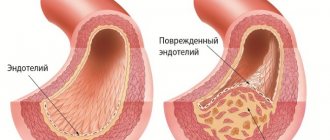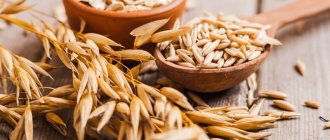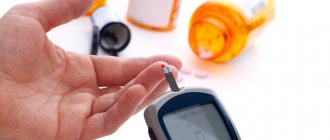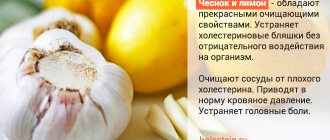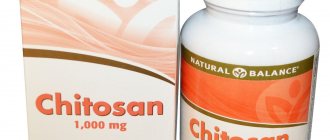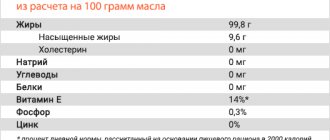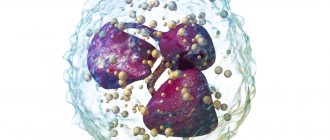At the end of the 20th and beginning of the 21st centuries, diseases of the cardiovascular system acquired the nature of a pandemic, being the main cause of disability and death in the population of economically developed countries. The main role in circulatory disorders in arterial vessels belongs to atherosclerosis.
Atherosclerosis is a chronic disease of the arteries that occurs as a result of lipid metabolism disorders and is accompanied by the deposition of cholesterol and its “bad” fractions in the vessel wall. Deposits form atherosclerotic (cholesterol) plaques on the walls of blood vessels. The subsequent growth of connective tissue in them (sclerosis), and calcification (calcium deposition) of the vessel wall lead to deformation and narrowing of the lumen until complete blockage.
When the arteries supplying the heart are damaged, a phenomenon called angina pectoris (chest pain) occurs and, as a result, acute myocardial infarction may develop.
Damage to the arteries supplying the brain causes either a transient (micro-stroke) or persistent (stroke) disturbance of cerebral circulation. Deposition of cholesterol in the arteries of the extremities is the cause of the development of lameness, pain in the calf during exercise, and gangrene of the extremity. Atherosclerosis of the abdominal arteries leads to intestinal ischemia and gangrene. Possible narrowing of the renal arteries due to the accumulation of cholesterol leads to a pronounced increase in blood pressure.
Risk factors for the development of atherosclerosis
- hypertension (systolic blood pressure >140 mm Hg, diastolic blood pressure >90 mm Hg),
- alcohol abuse,
- smoking (the most dangerous factor),
- sedentary lifestyle,
- unhealthy diet
- hereditary predisposition,
- obesity,
- increased cholesterol in the blood (total cholesterol >5 mmol/l, “bad” cholesterol >3 mmol/l, a-cholesterol >50 mg/dl,
- diabetes,
- emotional overstrain.
Such a high probability of atherosclerosis requires timely provision of therapeutic and preventive assistance, because it is known that a person’s age is determined by the state of his vascular bed. In the popular scientific literature devoted to the problem of atherosclerosis, the expression “ cleansing of blood vessels ” is used. Although not a medical term, “ vascular cleansing ” defines a number of extremely relevant measures for the prevention and treatment of atherosclerosis:
- healthy lifestyle and prevention of atherosclerotic process in blood vessels,
- stabilization of the course of atherosclerosis in the presence of its clinical manifestations through pharmacological agents,
- surgical restoration of vascular patency in cases of severe manifestations of atherosclerosis.
How to supplement preparations for cleaning blood vessels from cholesterol plaques?
Typically, agents and drugs that dissolve cholesterol plaques in blood vessels are supplemented with special diets and a set of physical exercises for atherosclerosis. For example, just 30 minutes of physical exercise a day (with an increase in heart rate) can raise HDL levels by 10% or more (and high-density lipoproteins are responsible for transporting LDL to the liver from the blood, which indirectly affects the cleansing of blood vessels from atherosclerotic plaques, i.e. That is, in fact, they are analogues of means for removing cholesterol plaques without any side effects).
As a supplement to medications, we can recommend a folk remedy for cholesterol plaques in blood vessels - garlic (including processed form), tinctures based on honey (1 cup), celery and parsley roots (a kilogram of each), crushed lemon (tincture is taken according to 2-3 teaspoons before meals). Also, folk remedies include a mixture of crushed lemons and oranges - 1 tablespoon before meals. Such folk remedies as flax seed tincture, as well as suppliers of omega-3 fatty acids and soluble fiber, have a positive effect on the level of LDL in the blood.
See also:
Lemon and garlic tincture for cholesterol
How to drink flaxseed oil correctly to lower cholesterol
Diet for vascular atherosclerosis
First of all, it is supposed to reduce the consumption of fats (containing cholesterol) to such a level that they account for less than 30% of daily calories. In this case, the proportion of saturated fats should not exceed 10%. It is recommended that cholesterol intake be no more than 300 mg per day.
The next requirement for the diet is calorie restriction. In this case, the total caloric intake should not exceed 2500 calories per day. However, we must not forget about the variety and nutritional value of food. It is known, for example, that a deficiency of protein in food reduces resistance to stress, a lack of fatty acids contained in vegetable oils impairs brain function, etc.
Animal products
The consumption of saturated fat, or more simply cholesterol, can be reduced by reducing the amount of beef, pork and lamb. It is recommended to consume any meat products boiled.
It is necessary to remove the skin from the bird and avoid eating the internal organs of animals.
Fatty fish, such as halibut, contain a completely different type of fat that helps dissolve cholesterol plaques in arteries affected by atherosclerosis. Experts from Duke University believe that even one fish meal a week may be enough to reduce the risk of an unexpected heart attack by 50%. Interestingly, you can take fish oil instead of fish, which contains omega-3 fatty acids and lowers cholesterol.
Also, the diet should satisfy the body's needs for vitamin B6. It is actively involved in the processes of fat metabolism, in the transport and breakdown of cholesterol, and in organic iodine, which increases the synthesis of thyroid hormones. Thus, it stimulates the processing of dangerous cholesterol.
For this purpose, it is recommended to include seafood in the diet:
- seaweed dishes,
- squid,
- scallop,
- mussels, etc.
These are the products that lower cholesterol and “clean” blood vessels .
Products of plant origin
Vegetable oil contains “healthy” polyunsaturated fats. Olive oil is considered the most beneficial among vegetable fats. Try to replace them with other types of fats that contain bad cholesterol. Preference should be given to unrefined, cold-pressed olive oil. Because it contains a record amount of antioxidants that are beneficial for the heart and blood vessels, preventing the development of atherosclerosis. This oil is also involved in cleaning blood vessels from cholesterol.
But you can’t get carried away with vegetable oils either! This is often forgotten in recommendations. The fact is that an excess of polyunsaturated fatty acids can lead to a decrease in good cholesterol, which has an anti-sclerotic effect.
Cholesterol intake can be reduced by reducing the consumption of egg yolks (4 yolks per week) and organ meats:
- brain,
- kidneys,
- liver.
55-60% of daily calories should be provided by complex carbohydrates:
- vegetables,
- whole grain products,
- fresh fruits.
An important point is the inclusion of wholemeal products in the diet. The substances contained in the shells of grain crops bind and remove from the body cholesterol contained in food, as well as salts of heavy metals, nitrates and nitrites, carcinogens. Whole grain bread, wheat bran and oat bran contain coarse fiber. The norm is at least 20 g of fiber per day.
One of the richest sources of omega-3 fatty acids is flaxseed. Canadian cardiologists have found that regular consumption of flaxseed provides reliable protection against the formation of blood clots and cholesterol deposition in the arteries, leading to heart attack and stroke. The risk of heart attack can be reduced by up to 40%. 2 tbsp per day is enough. tablespoons of flaxseed, which can be added to porridge, salads and other dishes. Flaxseed should be stored in the refrigerator.
In fact, all of the above products can be classified as traditional methods of treating vascular atherosclerosis.
What drugs (medicines) destroy cholesterol plaques?
Strictly speaking, there are no medications or medications that would destroy atherosclerotic plaques. However, conservative treatment methods (by taking drugs that “break down” plaques, changing lifestyle to a more active one, following diets for those with high blood cholesterol) make it possible to fix the number of cholesterol plaques at a certain level.
Why are there no effective drugs that resolve cholesterol plaques? The fact is that they can be dissolved before calcium gets into them (calcinosis). In addition, dissolving existing plaques is not a completely safe process, because they are formed in places where blood vessels are damaged and serve as their “patches.” In addition, drugs do not show high effectiveness without following nutritional rules for cholesterol plaques.
There are also medications that can, if not dissolve cholesterol plaques, then at least prevent the risk of their formation and accumulation. This includes both statins (which depress liver function, and therefore are used extremely rarely and when it is no longer possible to live without them), as well as the practically safe “Cardiomagnyl” and “Aspirin Cardio” (see also, does aspirin lower cholesterol).
Aspirin for cholesterol plaques
Aspirin does not help with cholesterol plaques and is certainly not the drug that can remove them, but it does prevent blood from clotting when the cholesterol plaque ruptures. To prevent the adverse consequences of rupture of an atherosclerotic plaque, even small (children’s) doses of 75–80 mg are often sufficient.
A small dose of aspirin daily is effective in reducing the risk of heart attack and stroke (especially in men—in women, heart attacks are more often associated with arterial spasms rather than blood clots).
However, self-prescribing aspirin is not allowed, because it carries a potential danger - it increases bleeding and causes damage to the mucous membranes of the gastrointestinal tract, which in the long term can lead to the formation of ulcers. Therefore, for people at low risk of stroke and heart attack, taking aspirin is not advisable.
See also:
Cholesterol treatment at home
Is it possible to remove cholesterol plaques from blood vessels?
What to do if your blood cholesterol levels are high
Treatment of high blood cholesterol with folk remedies
Treatment of cholesterol plaques in blood vessels with folk remedies
Aspirin is produced in the form of tablets in an enteric-protective coating. It is believed that such tablets have the least impact on the gastrointestinal tract and do not irritate the inner lining of the intestines and stomach. However, aspirin and derivatives based on it are not medications for cleaning blood vessels from cholesterol plaques or medications for lowering cholesterol levels.
Diet of cardiac patients
It is necessary to limit table salt and include foods rich in potassium salts: baked potatoes, green onions, parsley, apricots, dried apricots, figs, prunes, apricots, bananas. Coffee beans contain a lot of potassium, but instant coffee does not! And also in black tea leaves. Green tea contains several powerful antioxidants that lower cholesterol and help normalize blood pressure. 3 teaspoons of green tea are poured into 0.5 liters of boiling water, steeped for 10 minutes and filtered. This amount is enough for a day.
It is highly recommended to distribute the diet into 5-6 meals. The last meal should be no later than 18-19 hours.
Eating any vegetables and fruits is beneficial. It is advisable to consume from 5 to 7 different types daily. Eggplants occupy a special place; they help eliminate cholesterol and also reduce its content in the blood and in the walls of blood vessels.
Nuts have a similar effect:
- peanut,
- walnuts,
- cashew nuts,
- hazel,
- almond,
- hazelnut.
Research shows that eating 150g of shelled nuts per week reduces the risk of coronary artery disease and heart attack by 33% in some patients. However, you should not get carried away with nuts, since these are very high-calorie foods that contribute to weight gain.
Cabbage is very useful:
- broccoli,
- Brussels sprouts
- white cabbage,
- colored.
They contain antioxidants and other valuable biologically active substances that are beneficial for blood vessels and the heart.
It is recommended to eat 2-4 sweet and sour apples daily. Black currants, shadberry and garlic are useful.
Traditional methods of treating vascular atherosclerosis are mainly associated with the use of healthy products that can be found in any garden and summer cottage.
Are there any medications that resolve cholesterol plaques?
Apparently, only drugs and medications based on polyunsaturated fatty acids (PUFAs) - gamma-linolenic acid (GLA) of the Omega-6 class and docosahexaenoic acid (DHA) and eicosapentaenoic acid (EPA) - can have some positive effect in dissolving cholesterol plaques. Omega-3 fatty acids. Hypothetically, these substances can dissolve atherosclerotic plaques with all their contents (more details: means for dissolving plaques in blood vessels).
Omega-3 fats are found in fatty varieties of cold-water sea fish (tuna, salmon, herring, etc.). Doctors do not recommend eating too much fish (more than 3-4 times a week): it contains a lot of mercury. Therefore, it is recommended to enrich the diet with nutritional supplements (on the topic: which dietary supplements dissolve cholesterol plaques). Both based on fish oil and flax (for example, flaxseed oil containing alpha-linolenic acid, which is the progenitor of DHA and EPA).
Omega-3 fatty acids must be supplied to the body regularly, over a period of 1–2 years, in order to reduce the level of cholesterol plaques by at least 10–15% (more details: how to reduce cholesterol levels in the blood at home). Omega-3 acids can be supplied by capsules (tablets) or fish oil oil.
Polyunsaturated fatty acids are not drugs for the treatment of cholesterol plaques and, apparently, they also are not able to reverse the development of atherosclerosis. They can be used as a stabilizing agent. This is also very good because... Recent studies indicate that the development of coronary heart disease (CHD) is associated, to a greater extent, not with the number of atherosclerotic plaques, but with the rate of their increase.
Non-drug methods for the prevention and treatment of vascular atherosclerosis
- to give up smoking,
- anti-atherosclerotic diet,
- active lifestyle - regular dosed physical activity,
- maintaining psychological and physical comfort,
- weight loss.
The diet is prescribed for 3-4 months, after which tests are monitored. If laboratory data and well-being indicate an improvement, then monitoring of the patient continues, but the diet is not removed. If no effect is obtained (cholesterol levels are even higher than normal), then the diet is tightened. If after another 3 months no effect is observed, then modern medications from the statin group are added.
Surgical methods for restoring blood flow (cleaning blood vessels)
Surgical methods of cleaning blood vessels are used for clinically pronounced manifestations of vascular insufficiency. In case of damage to the abdominal aorta and arteries of the lower extremities, the indications are:
- reducing the distance of pain-free walking to less than 200 meters,
- pain in the foot at rest,
- development of trophic ulcers and peripheral gangrene.
Surgical cleaning of blood vessels involves: removal of blood clots from the lumen of the artery, elimination of plaques narrowing or clogging the lumen of the vessel, the so-called endarterectomy. If it is impossible to locally remove obstacles in the lumen of the vessel, a new roundabout blood circulation path is created (bypass surgery).
Currently, surgeons have in their arsenal new, progressive methods of restoring or improving blood circulation in vessels, using X-ray endovascular interventions, during which it is possible to expand the lumen of the vessel (balloon plasty) and install a device to prevent narrowing of the vessel in the plasty area (stenting).
The problem of atherosclerosis cannot be eliminated by using any one method, even the most modern one. Treatment and prevention of atherosclerosis are complex and constant, with mandatory monitoring of their effectiveness.

